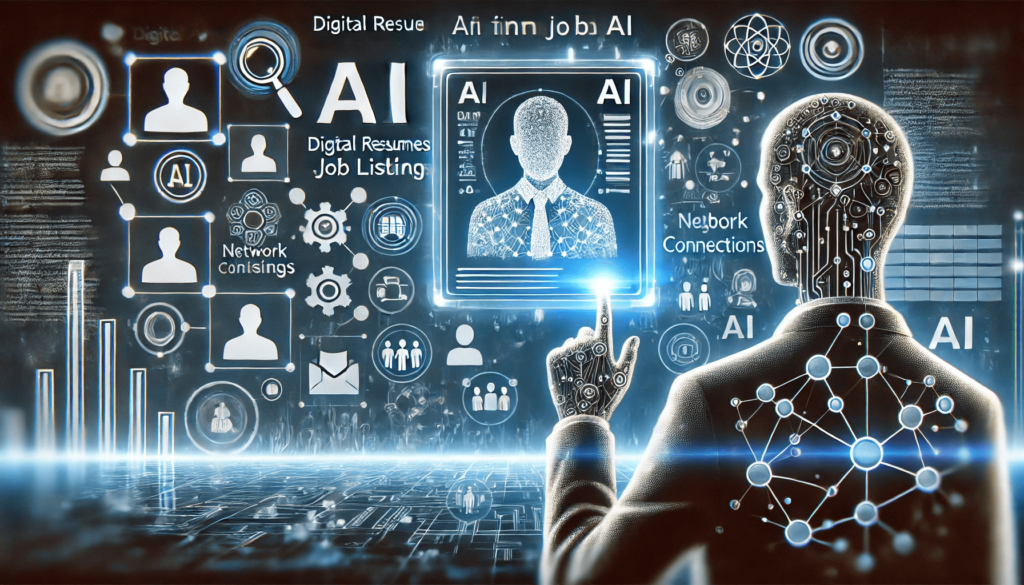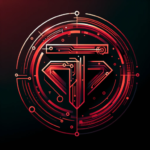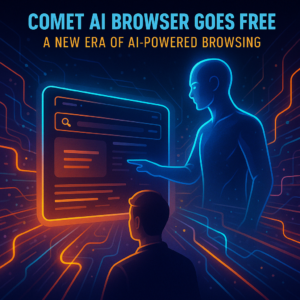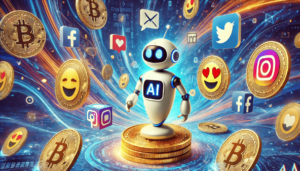Leveraging AI in Your Job Search: A Comprehensive Guide

Artificial intelligence empowers job seekers with advanced tools and insights.
- How can AI tools optimize my resume and cover letter to increase job application success?
- What are the benefits and challenges of using AI in preparing for job interviews and skill development?
- What are the future implications of AI integration in job searching, and how can I balance technology use with personal authenticity?
In today’s rapidly evolving job market, artificial intelligence (AI) is not just transforming industries—it’s revolutionizing the way we search for jobs. As highlighted in Forbes, AI tools are providing job seekers with unprecedented advantages, from resume optimization to interview preparation. This article explores how you can harness AI to enhance every step of your job search, offering critical insights into the implications and future scenarios of this technological integration.
The AI-Powered Resume: Optimizing Your First Impression
Your resume is often the first interaction you have with potential employers. In an age where companies use applicant tracking systems (ATS) to filter candidates, ensuring your resume aligns with job descriptions is crucial.
AI-powered platforms like Jobscan and Resume.io analyze your resume against specific job postings, identifying keywords and phrases that are essential for passing ATS filters.
Practical Steps:
- Analyze Job Descriptions: Carefully read the job posting and note key skills and requirements.
- Use AI Platforms: Input your resume and the job description into an AI tool.
- Optimize Accordingly: Adjust your resume based on the tool’s suggestions, ensuring that it accurately reflects your skills and experiences.
Pro Tip: Avoid keyword stuffing. Ensure that all included keywords genuinely represent your abilities and experiences.
Crafting Compelling Cover Letters with AI Assistance
A well-written cover letter can set you apart from other candidates by showcasing your enthusiasm and fit for the role.
Tools like Resume.co and Jasper can help generate tailored cover letters by analyzing job descriptions and your resume content.
Practical Steps:
- Input Your Information: Provide the AI tool with your resume details and the job description.
- Review and Edit: Carefully read the generated cover letter, adjusting the language to match your personal tone.
- Personalize: Add specific anecdotes or insights that reflect your genuine interest in the company and role.
Pro Tip: Use the AI-generated content as a foundation, but always infuse your unique personality and experiences.
Discovering Hidden Opportunities Through AI
AI can uncover job opportunities that might not appear in standard searches, expanding your potential career options.
Platforms like LinkedIn’s Job Recommendations and Glassdoor’s Job Match use AI algorithms to suggest positions based on your profile and activity.
Practical Steps:
- Complete Your Profile: Ensure your LinkedIn and other professional profiles are up-to-date and detailed.
- Set Up Alerts: Use job alert features with specific criteria to receive notifications.
- Explore Suggestions: Regularly review AI-suggested jobs, even those that are slightly outside your usual search parameters.
Pro Tip: Be open to unconventional roles; AI might highlight positions that leverage your skills in new ways.
Preparing for Interviews with AI Support
Interview preparation is critical, and AI can provide personalized coaching to enhance your performance.
Tools such as Interviewer.AI and Yoodli offer simulated interviews, analyzing your responses, tone, and body language (when video is used).
Practical Steps:
- Simulate Real Interviews: Use AI tools to practice common and role-specific interview questions.
- Analyze Feedback: Review the AI’s assessment of your answers, speech patterns, and non-verbal cues.
- Refine Your Approach: Work on areas of improvement identified by the AI, such as filler words or lack of eye contact.
Pro Tip: Practice with industry-specific questions and stay informed about current trends that might influence interview topics.
Bridging Skill Gaps with AI-Driven Learning
Identifying and addressing skill gaps can make you a more competitive candidate. AI tools can assess your current abilities and recommend courses or resources to enhance your qualifications.
Practical Steps:
- Conduct a Skill Assessment: Use platforms that evaluate your competencies against industry standards.
- Create a Learning Plan: Based on the assessment, identify key areas for improvement.
- Engage in Continuous Learning: Utilize resources like LinkedIn Learning or Coursera to develop new skills.
Pro Tip: Balance technical skills with soft skills, such as communication and leadership, which are highly valued by employers.
Navigating Salary Negotiations with AI Insights
Understanding your market value empowers you to negotiate effectively. Websites like Salary.com’s Salary Wizard provide detailed salary reports based on your role, experience, and location.
Practical Steps:
- Research Thoroughly: Input accurate information to get a realistic salary range.
- Consider Total Compensation: Evaluate benefits, bonuses, and other perks alongside the base salary.
- Prepare Your Case: Use the data to support your salary expectations during negotiations.
Pro Tip: Be flexible and open to discussions about other forms of compensation, such as remote work options or professional development opportunities.
Implications and Future Perspectives
The integration of AI into job searching presents both opportunities and challenges. While AI tools can streamline the job search process, it’s essential not to lose the human element that distinguishes you from other candidates.
- Opportunity: AI can handle time-consuming tasks, allowing you to focus on building relationships and networking.
- Challenge: Overreliance on AI may lead to generic applications lacking personal flair.
Future Scenario: As AI becomes more prevalent, employers may seek candidates who demonstrate adaptability and proficiency with technology, alongside strong interpersonal skills.
Ethical Considerations
The use of AI in recruitment raises questions about data privacy and algorithmic bias.
- Opportunity: AI can reduce human biases in initial screenings by focusing on skills and qualifications.
- Challenge: AI systems can inadvertently perpetuate existing biases if not properly designed and monitored.
Future Scenario: Increased emphasis on ethical AI practices in recruitment, with transparency in how algorithms make decisions.
Accessibility and Equity
AI tools can democratize access to job opportunities but may also widen the gap for those without technological access or literacy.
- Opportunity: Candidates from diverse backgrounds can discover opportunities previously out of reach.
- Challenge: Individuals without access to AI tools may be disadvantaged.
Future Scenario: Initiatives to provide wider access to AI resources and training, ensuring equitable opportunities for all job seekers.
Embracing AI While Honoring Authenticity
Artificial intelligence is undeniably a powerful ally in navigating the modern job market. By effectively leveraging AI tools, you’re not just optimizing your job search—you’re positioning yourself as a forward-thinking professional equipped for the future of work.
However, it’s crucial to remember that AI should augment, not replace, your efforts. Authenticity, personal connections, and human insights remain invaluable. By combining the efficiency of AI with your unique qualities, you can stand out in a competitive landscape.




